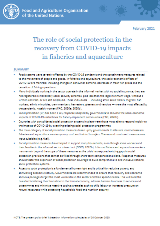
The role of social protection in the recovery from COVID-19 impacts in fisheries and aquaculture
01/01/2021
Food systems were severely hit by COVID-19 and the related restrictions to the movement of people and goods. In fisheries and aquaculture, the socio-economic effects of COVID-19 are manifold including changes in consumer demand, limited storage facilities, drop in fresh fish prices and stopping fishing operations.
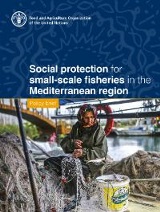
Social protection for small-scale fisheries in the Mediterranean region - Policy brief
01/01/2019
This policy brief presents the outcomes of a study commissioned by the FAO and the GFCM on available social protection systems in five countries in the Mediterranean (Albania, Egypt, Lebanon, Morocco and Tunisia).
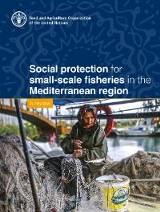
Social protection for small-scale fisheries in the Mediterranean region
01/01/2019
This study commissioned by the FAO and the GFCM reviewed available social protection systems in five countries in the Mediterranean (Albania, Egypt, Lebanon, Morocco and Tunisia). It identifies the conditions and vulnerabilities of fishers, along with best practices in the provision of social protection programs and policies, and proposes recommendations to improve the coverage and effective delivery of social protection programmes for small-scale fishers in the region.
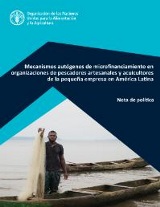
Nota de política
01/01/2020
Los mecanismos de financiamiento externo resultan esenciales para la sostenibilidad de los micro y pequeños productores agropecuarios y acuícolas. En la mayoría de los casos, su escala de producción y la consecuente baja renta generada, imposibilitan su acceso regular a los insumos de producción requeridos para iniciar nuevos ciclos.
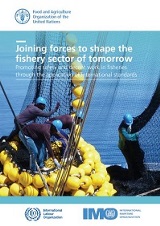
Promoting safety and decent work in fisheries through the application of international standards
01/01/2020
This brochure gives a summary overview of four international binding fisheries instruments (conventions and agreements) that promote the safety of fishing vessels, safety of fishers, training of fishers, and responsible and safe fisheries operations.
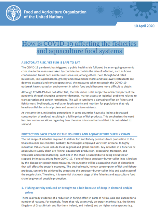
How is COVID-19 affecting the fisheries and aquaculture food systems
10/05/2020
The full range of activities required to deliver fish and fish products from production to the final consumer is subject to indirect impacts of the pandemic through new sanitary measures, changing consumer demands, market access or logistical problems related to transportation and border restrictions.
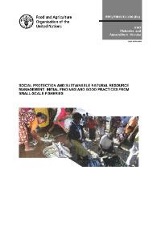
Social protection and sustainable natural resource management: initial findings and good practices from small-scale fisheries
20/05/2015
The paper explores how social protection interventions can be used to reduce the vulnerability and strengthen the resilience of households and communities who depend principally on renewable natural resources to sustain their livelihoods and food security, using the case of small-scale fisheries as an illustrative case.
